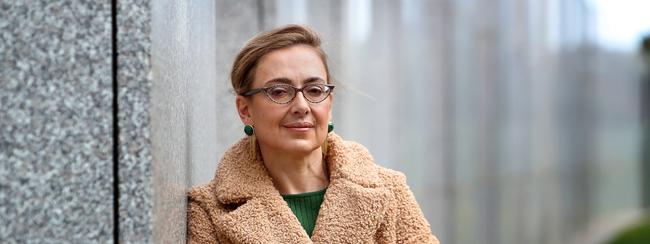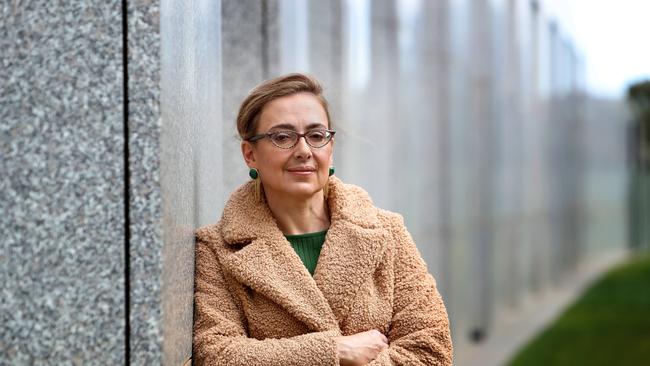Medibank says prostheses deal is an admission of price gouging
Medibank chief executive David Koczkar says medical device companies have finally recognised Australians pay too much for prostheses.

Australia’s biggest health insurer Medibank says medical device companies have finally admitted that Australians pay “too much” replacement hips, knees and other artificial body parts after striking a deal with Health Minister Greg Hunt.
The Morrison government says families are set to save up to $50 a year on their private health insurance premiums after it struck a deal with medical device companies that aims to slash the cost of prostheses by more than $900m a year.
The much-anticipated reform package Mr Hunt brokered with medical device makers has split hospital groups, while health funds say they were excluded from negotiations.
Medibank chief executive David Koczkar said more work needed to be done to rein in costs - with private patients paying more than double for the same prostheses than public patients
“It is pleasing that today the medical device companies have recognised Australians pay too much, and that this has to change,” Mr Koczkar said.
“Private patients can pay up to 145 per cent more for the same items than in the public system and even higher again compared to international markets like New Zealand, France and the UK, which is reflected in health insurance premiums.
“There is more work to be done, as parties understand the details and work through the implementation process. Reform to prostheses is key to keeping downward pressure on premiums.
Mr Koczkar vowed to pass on “any savings that are realised, in full to our customers, through lower premium increases”.
But health funds are sceptical the agreement will deliver the savings claimed that was secured on the eve of an election without their input. Under previous cuts to the prostheses list in 2017, health funds say they only received 10 per cent of the promised $250m savings.
Private Healthcare Australia chief executive Rachel David, who represents health insurers, was also baffled that the government struck an memorandum of understanding with the Medical Technology Association of Australia, when the devices its members supply are largely “generic”.
“Obviously anything that the government can do to make savings in this area which has been out of control, we welcome,” Dr David said on Thursday.
“But the trouble is we just went party to this deal and we’re not sure what the status of it is. This is a deal that’s happened between the minister and multinationals, essentially about other people’s money, money that the members have invested in health funds.
“We’re pretty burnt by the last agreements the government did with the MTAA, which didn’t deliver any savings and that really is informing our approach to this deal.”

Health funds had previously called for the federal government to step away from prostheses pricing, advocating an open tender instead to stop alleged price-gouging in Australia’s private health system.
Health insurers say medical device companies have been “gaming” the system by adding ancillary items such as sponges and skin glues that have blown out the cost of prostheses, which cost the industry about $2bn a year.
Insurers have also highlighted the cost difference between medical devices in the public and private system. For example, a replacement hip in a private hospital costs $3000 more on average, at $9626, compared with $6299 in the public system, according to the Independent Hospital Pricing Authority.
The government has been caught in the middle of a feud between health funds, hospital groups and medical device makers about how to best rein in spiralling prostheses costs. Australians pay up to double the price for prosthesis than patients in the UK, France and New Zealand, with generic medical devices the “main driver of premium increases”, according to health funds.
A draft proposal the government commissioned from accounting firm Ernst & Young late last year suggested removing about 90 per cent of items on the general miscellaneous list, which includes items such as glues and sponges.
Instead, the government has pushed back the removal of those items until mid next year, with the Independent Hospital Pricing Authority set to oversee “bundle agreements” between health funds and private hospitals to limit wastage and ensure that no party is out of pocket.
But private hospitals say that would have created a $250m funding hole. Pat Garcia, CEO of Catholic Health, which represents St John of God, St Vincents and others, say the deal still does not include any assurance that hospitals will be left millions of dollars out of pocket when those items are removed from the list.
“We are troubled that after what has been a lengthy consultation process there is no assurance from the Government that insurers will be mandated to pay for these new bundles of critical surgical items. We will continue to seek that guarantee from Government,” Mr Garcia said.
“Private hospitals cannot absorb the additional hundreds of millions of dollars in costs and regrettably in the end it will be borne by patients who will face higher out of pocket expenses.”
But Australian Private Hospitals Association CEP Michael Roff said Mr Hunt achieved “a pretty good compromise”, with Independent Hospital Pricing Authority overseeing bundle agreements.
“The idea is to work with IHPA to develop bundles of these items and also for IHPA, to establish a price for each of those bundles which will then put some onus on the hospitals to manage utilisation,” Mr Roff said.
“The minister has assured us that there will be a proper consultative process with stakeholders to develop the bundles and the pricing. And then the next step is to determine how those items or those bundles will be funded once they come off the list.”
Mr Roff also dismissed the health funds’ concern.
“There’s no doubt that this public reference pricing approach will deliver significant cuts to prostheses prices and therefore significant savings to health funds.
“Health funds will always cry poor but you know, for the last two years, they’ve been sitting there fat, dumb and happy as they accumulate premiums that they can’t spend because surgery restrictions.
“So I accept on face value, the intent of this MOU, we will, as a key stakeholder, be working to deliver the objectives. And I take with a grain of salt, any objections that health funds raised.”







To join the conversation, please log in. Don't have an account? Register
Join the conversation, you are commenting as Logout